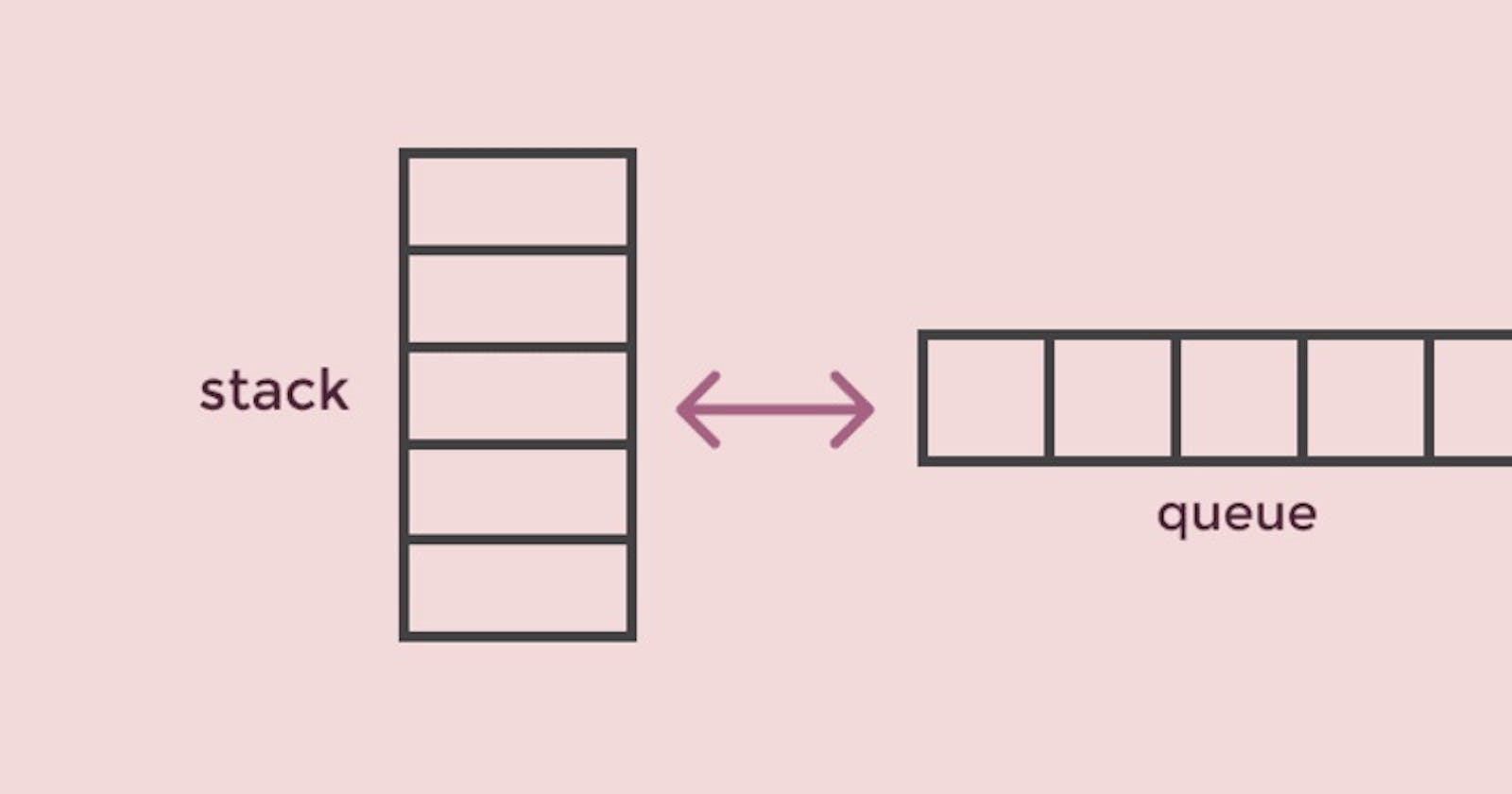Stack
A stack is an ordered list (Data Structure) in which all insertion and deletion are done at one end. It is a First In Last Out (FILO). Top is a pointer pointing to the top most element of the stack.
Applications of Stack
- Recursion
- Post fix evaluation of expression
- infix to prefix/postfix
- Tower of Hanoi
- Fibonacci sequence and series
- Permutation
- Symbol balancing
Stack Operations
Operations related to a Stack Data Structure are : PUSH(), POP(), IsEmpty(), IsFull() etc.
Let S be the stack, N be max stack size and item be the element to be inserted.
Push:
push (S, Top, N, item){
// is_full check
if (Top == N-1){
printf("Stack Overflow");
exit(1);
}
Top++;
S[Top] = item;
}
Pop:
pop (S, Top, N){
int temp;
// is_empty check
if (Top == -1){
printf("UnderFlow or Stack is Empty");
exit(1);
}
temp = S[Top];
Top --;
return temp;
}
Queue
It is First-In-First-Out(FIFO). Item which gets in first gets out first. Insertion side is Rear and Deletion side is Front.
Applications of Queue
- Multi-programming in OS
- CPU Scheduling in OS
- Breadth First Search Algorithm
- Prefix expressions evaluation
Types of Queue
- Single ended: Insertion at one and deletion at other end.
- Double ended: Insertion and deletion on both the ends
- Priority Queue: Serve elements a/c to the priority assigned to them.
- Restricted Queue: Restrictions only on one end i.e, either on insertion or deletion
Queue Operations
Operations on queue are Enqueue(Insertion) and Dequeue(Deletion).
Implementation of a queue – using two Stacks.
Enqueue:
enqueue(Q, N, front, rear, item){
// is_full check
if ((front==0 && rear==N-1) or (rear==front-1)){
printf("Queue Overflow or Queue is Full");
exit(1);
}
if (front == -1){
front=0;
rear=0;
}
else if (rear == N-1){
rear = 0;
}
else{
rear += 1;
}
Q[rear] = item;
exit(1);
}
Dequeue:
dequeue(Q, N, front, rear){
// is_empty check
if (front == -1){
printf("Queue is Empty or Underflow");
exit(1);
}
item = Q[front];
if (front == rear){
front = rear = -1;
}
else if (front == N-1){
front = 0;
}
else {
front += 1;
}
exit(1);
}
